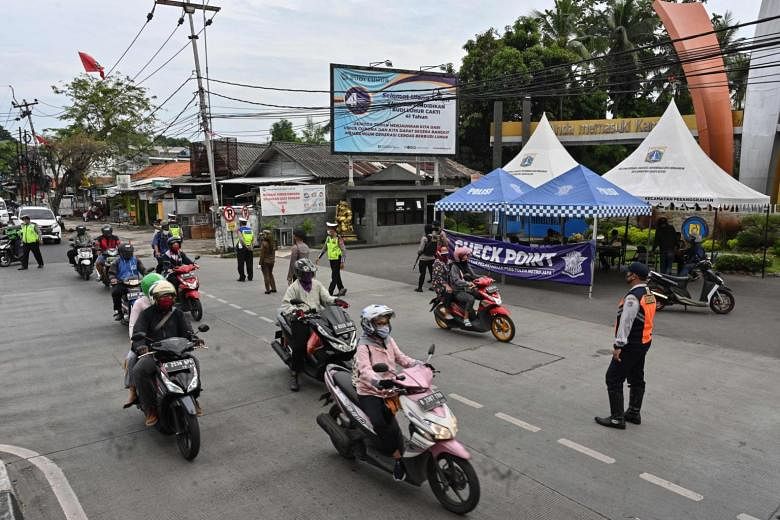JAKARTA (THE JAKARTA POST/ASIA NEWS NETWORK) - Reports about the easing of restrictions in other countries are ever so tempting.
Even in China where a second wave of Covid-19 infections is not ruled out, kindergartens have opened; likewise, classes have started in Japan and Denmark with school staff taking temperatures at the door and with desks set further apart than usual.
Since late April several states in the United States have begun easing home confinement while the hardest hit areas such as California and New York are holding fast to restrictions.
Germany's Chancellor Angela Merkel announced on Wednesday (May 6) the gradual lifting of restrictions; shops can reopen with additional hygiene measures, for instance.
In Australia, Prime Minister Scott Morrison announced Friday (May 8) a three-step plan for restarting economic and social life with July set as the final "aspirational" target.
In the first phase to start "soon", weddings can have a maximum of 10 guests, cafes and restaurants can have up to 10 patrons with at least 4 square meters of space per person; but international travel is unlikely to resume in the near future.
Last Friday Malaysia announced most businesses would be allowed to resume operations and childcare centres would open. However, parents remain fearful about taking chances.
Therefore, governments are assessing their own societies on when and how to go about relaxing restrictions.
In Indonesia as millions become deeply fearful about how to feed their families in the coming weeks, hopes are high that the economy can slowly resume.
But however closely we may try to imitate the disciplined measures in the above countries, there are already too many holes in the enforcement of the large-scale social restrictions (PSBB).
The national Covid-19 taskforce chief Doni Monardo said Wednesday (May 6) that essential travel was now allowed, such as for medical personnel but he also described the presence of a military officer's wife at his handover ceremony as "important".
So, what other interpretations could there be of what is "essential"?
Further, the main drawback is that we lack even the basic, essential information to assess the severity of the global pandemic within our shores.
Swab tests have covered over 96,000 people but this is only 358 tests per 1 million people, far lower than in neighbouring countries; while high-risk clusters keep emerging such as in wet markets and health facilities, which have treated "super-spreader" patients with unclear travel histories.
As epidemiologist Pandu Riono has said, only with timely, accurate data on transmission can authorities evaluate the PSBB and issue a gradual plan to loosen restrictions.
Apart from a decline in confirmed cases as a reason to ease restrictions, he said the figures of patients under surveillance also should decline, as well as there being no new clusters.
Yet on Tuesday (May 5) Indonesia reported its highest increase of confirmed infections with 484 new cases in one day, just as Mr Monardo had claimed the transmission rate had slowed to around 11 percent.
We agree with the experts that it is too early to ease restrictions as hospitals are still overwhelmed. At the very least the government needs to increase the provision of aid and intensify the campaign to curb the spread of the virus.
The Jakarta Post is a member of The Straits Times media partner Asia News Network, an alliance of 24 news media organisations.











